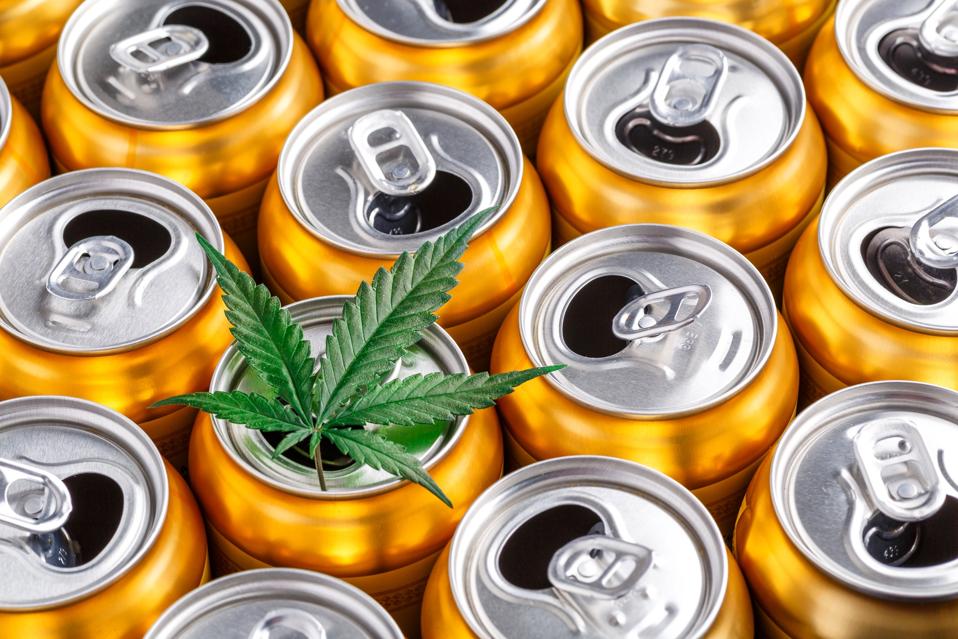The Alabama House of Representative this week passed legislation to regulate consumable hemp goods, with supporters of the bill saying it is needed to keep intoxicating products out of the hands of children. The measure, House Bill 445 (HB 445), was approved by the House without debate on Thursday by a vote of 76-15, according to a report from Al.com.
“This is one of the bills that I think you saw wide, bipartisan support,” Republican state Rep. Andy Whitt, the sponsor of the bill, told reporters after Thursday’s vote. “It affects every neighborhood across the state. These are unregulated, unchecked, and dangerous products that are being sold to our children in our convenience stores and retailers across the state, and it is time we put guardrails on this to protect our students in high school.”
Bill Regulates Consumable Products Hemp Like Alcohol
If passed by the Alabama Senate and signed into law by Republican Gov. Kay Ivey, HB 445 would authorize the Alabama Alcoholic Beverage Control Board to regulate consumable hemp products. The board would be responsible for issuing licenses to oversee the manufacturing, distribution and sales of hemp consumables, similar to the agency’s oversight of the state’s alcoholic beverage industry.
The measure also restricts sales of consumable hemp products to adults aged 21 and older. Sales would only be permitted by retailers that are licensed to sell alcoholic beverages and stand-alone shops that do not permit access to minors.
HB 445 also sets a limit for consumable hemp products of 5mg THC, the cannabis compound primarily responsible for marijuana’s psychoactive effects. The legislation also levies a tax on consumable hemp products.
“We are coming for the bad actors that put profit and the safety of our children. Convenience stores need to stick to selling gas and sodas, and they are not our local pharmacy stores. We’re going to regulate these products,” Whitt said during a meeting of the House Health Committee, the Alabama Reflector reported. The lawmaker added that the state’s current market for consumable hemp products is “unregulated, unchecked and dangerous.”
“When you go into a convenience store and see these products, you think that someone has looked over them, and that is just complete inaccuracy,” Whitt added.
Prior to Thursday’s vote on the bill, Whitt told his colleagues in the House that the measure had taken on new urgency because of “recent developments.” He said that a press release from hemp products manufacturer Herbal Oasis reported the company was expanding operations into Alabama, saying that “their product will be in convenience stores, grocery stores and other locations throughout Alabama and Florida Panhandle, starting in late March.”
Hemp Industry Opposes Regulatory Bill
The bill is opposed by representatives of Alabama’s hemp products industry, including Carmelo Parasiliti, founder and CEO of Green Acres Organic Pharms in Florence, who told lawmakers that the “data simply does not support the hysteria.” He added that the Alabama Poison Information Center reported 235 cases related to Delta-8 THC, a compound found in many consumable hemp products, in 2023, and that these cases represent just 0.018% of Alabama residents under 21.
“Most importantly, no deaths have occurred. Cannabinoids like Delta-8, CBD, and CBG are nonlethal, nonaddictive, and federally legal,” Parasiliti said.
Molly Cole, a lobbyist for the Alabama Hemp and Vape Association, said the bill would “eliminate over 10,000 jobs in Alabama.”
“Instead of rushing HB 445, I urge you to support a study commission. Bring together legislators, regulatory regulators, industry leaders and public health experts to craft long-term, evidence-based policy. Other states have done this successfully. Now Alabama can too,” Cole said.
House Bill 445 now heads to the Alabama Senate for consideration.

